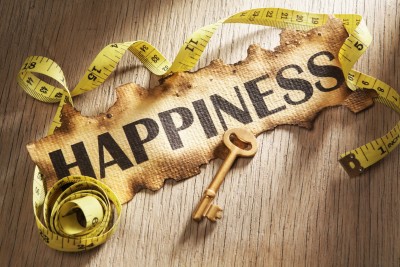 According to a column in the New York Times, conservatives are happier than liberals.
According to a column in the New York Times, conservatives are happier than liberals.
Arthur Brooks, president of the American Enterprise Institute, recounts the evidence and it is pretty convincing. The Pew research Center, for example, says conservative Republicans are 68% more likely to say they are very happy than liberal Democrats.
This pattern has persisted for decades and scholars of every stripe agree that it is true. Not that conservatives actually are happier, but that they are more likely to say they are happier. Clearly people who think they are happy have a point of privilege in this argument.
I find other data more interesting. Married people are happier than unmarried people, as it turns out. That makes some sense because conservatives (53%) are more likely to be married than liberals (33%). Who knew that something God designed could be so good for us.
People who go to church are happier too. And conservatives are more likely to go to church. In fact,Brooks says, they outnumber liberals who go to church by a margin of 4 to 1. Apparently people who cling to their religion are more than twice as likely to say they are “very happy” than people who don’t. (No data is available on people who cling to their guns.)
You can read more about the politics of this in Brooks column. He argues that this gap is not just because conservatives are too insensitive to see all the misery in the world.
But what I find really interesting is that the happiest people are the ones on the edges, regardless of political persuasion. Moderates turn out to be the least happy of all, since 48% of those who describe themselves as “extremely conservative” say they are “very happy” and 35% of those who describe themselves as “extremely liberal” say so. But only 26% of self-described moderates do.
Apparently you have to believe in something, care about something, even fight for something if you want to be happy. This, Brooks says, is “the security of knowing what is wrong and whom to fight.”
This makes sense. If moderation is merely compromise, there is no pleasure in winning. Or even a reason to. But I don’t think winning is the way to happiness. I think believing is. We are wired to have faith in something, even if we are wrong.
I’m not saying conservatives are right about everything or that liberals are wrong about everything either. What I’m saying is commitment and conviction are part of how God designed us.
I have many good friends who are passionate liberals. I think they are happier for it.
They are certainly a lot more fun to argue with.
(Part 1 in a series on “The happiness gap.”)

An excerpt from the Arthur Brooks article.
“An explanation for the happiness gap more congenial to liberals is that conservatives are simply inattentive to the misery of others. If they recognized the injustice in the world, they wouldn’t be so cheerful. In the words of Jaime Napier and John Jost, New York University psychologists, in the journal Psychological Science, “Liberals may be less happy than conservatives because they are less ideologically prepared to rationalize (or explain away) the degree of inequality in society.” The academic parlance for this is “system justification.”
The data show that conservatives do indeed see the free enterprise system in a sunnier light than liberals do, believing in each American’s ability to get ahead on the basis of achievement. Liberals are more likely to see people as victims of circumstance and oppression, and doubt whether individuals can climb without governmental help.”
I think “simply inattentive” is hyperbole, but it paints a polarizing picture of extremes.
Whether liberals or conservatives are happier doesn’t seem as poignant a question as, How have both liberals and conservatives substituted the pursuit of God with the pursuit of happiness? I wonder what A.W. Tozer would think of our culture today trying to find happiness in the accumulation of wealth, or personal liberty, or in our social programs that attempt to right oppression, inequality or environmental stewardship.
[…] this makes me happy […]
[…] [This post, from the archives, was originally posted as the third of a series on happiness on July 11, 2012. My thoughts about the happiness gap begin here.] […]